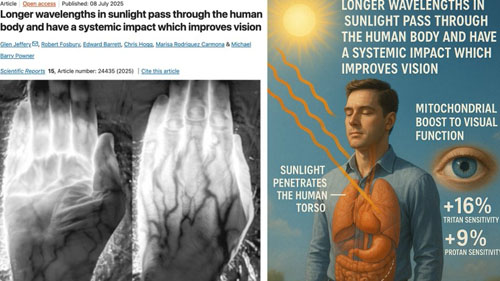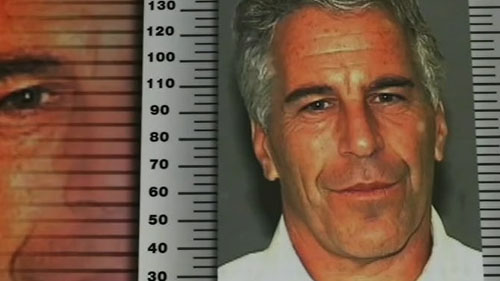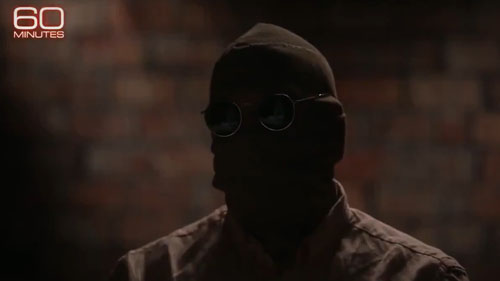| Recent Featured Videos and Articles | Eastern “Orthodoxy” Refuted | How To Avoid Sin | The Antichrist Identified! | What Fake Christians Get Wrong About Ephesians | Why So Many Can't Believe | “Magicians” Prove A Spiritual World Exists | Amazing Evidence For God | News Links |
| Vatican II “Catholic” Church Exposed | Steps To Convert | Outside The Church There Is No Salvation | E-Exchanges | The Holy Rosary | Padre Pio | Traditional Catholic Issues And Groups | Help Save Souls: Donate |  |









 " />
" /> " />
" /> " />
" /> " />
" /> " />
" />




The CMRI and Other Priests
Unfortunately, the priests of the CMRI (Congregation of Mary Immaculate Queen) also reject the true meaning of the dogma Outside the Church There is No Salvation. They also adhere to and promote the heretical Protocol 122/49 and hold that those who die as non-Catholics can be saved.
The CMRI recently published a pamphlet defending “baptism of desire” which implements arguments which have all been thoroughly refuted in this book. They use a combination of fallible texts (which don’t prove the point), misunderstood texts (which don’t state what they claim) and mistranslated texts to inculcate their false position. In fact, they outrageously still use the “except through” mistranslation of Sess. 6, Chap. 4 of Trent that has been discussed in this book. They also don’t tell you in their easily refuted and dishonest pamphlet that they hold that it’s possible for Jews, Muslims, Buddhists, etc. to be united to the Church and saved.
In the Winter 1992 issue of The Reign of Mary (the CMRI’s publication), the CMRI ran an article called “The Salvation of Those Outside the Church.”[1] This is a word for word denial of the dogma Outside the Church There is No Salvation. It is equivalent to publishing an article called “The Original Sin Mary Had.” The article, of course, inculcates the heresy that non-Catholics can be saved without the Catholic Faith. And this is their position to this day.
In the Winter of 1996, The Reign of Mary (publication of the CMRI) featured another heretical article called “The Boston Snare,” by Bishop Robert McKenna.[2] Bishop McKenna believes that souls who die as non-Catholics can be saved; he also believes that it is not heretical to believe that Jews who reject Christ can be in the state of grace, as confirmed in an exchange of letters that I had with him in the Spring of 2004. Ironically, Bishop McKenna’s thesis in the article is that this “heresy” of denying “baptism of desire” and “invincible ignorance” was the Devil’s snare which was sown in Boston, when the truth is actually just the opposite. Bishop McKenna and the CMRI (who printed his heretical article because they believe just as he does) are eating their words [“the Boston Snare”] right now by the scandal in Boston. But let’s look at an excerpt from his article.
Frankly, this has to be one of the more heretical statements ever made by a person purporting to be a traditional Catholic bishop. As can be seen clearly from these words, Bishop McKenna (like almost every modern priest) rejects the true meaning of this dogma and holds that non-Catholics can be saved without the Catholic Faith. In a desperate attempt to defend his heretical version of Outside the Church There is No Salvation, McKenna admittedly must change the understanding of the dogmatic formula proclaimed by the popes. He tells us that the “true” meaning of the dogma is that only those who are “knowingly” outside the Church cannot be saved. Oh really? Where was that qualification ever mentioned in the dogmatic definitions on this topic? Nowhere!
Recognizing that his understanding runs contrary to the clear words of the dogmatic definitions on the topic – none of which ever mentioned “knowingly” and all of which eliminated all exceptions – Bishop McKenna attempts to explain away the problem.
The dogma Outside the Catholic Church There is No Salvation, according to McKenna and the heretical CMRI which printed this article in their magazine (Vol. XXIV, No. 83), is not a truth from heaven, but a warning or admonition written for non-Catholics! This is nonsense and flat out heresy.
Dogmas are truths fallen from heaven which cannot possibly contain error. They are not merely human statements, written to warn non-Catholics, which are subject to correction and qualification. Dogmas are infallible definitions of the truth which can never be changed or corrected, and have no need to be changed or corrected since they cannot possibly contain error. Dogmas are defined so that Catholics must know what they must believe as true from divine revelation without any possibility of error, which is exactly the opposite of what McKenna and the CMRI assert.
And this is perhaps what is most important about the heresy of Bishop McKenna and the CMRI: the dogma deniers are revealing by such ridiculous argumentation that their “version” of this dogma is incompatible with the words of the dogmatic definitions; for if their version were compatible with the dogmatic definitions they would never be forced into heretical statements such as those above.
OTHER “TRADITIONALIST” PRIESTS DENYING THE DOGMA
It’s simply a fact that almost all of even the “traditionalist” priests reject the truth of this dogma, just like Bishop McKenna and the CMRI. For example, Bishop Donald Sanborn is considered by some to be a staunch defender of the traditional Catholic Faith. But he vigorously attacks those who hold to the absolute necessity of water baptism, and explicitly says that pagans and idolaters can be saved.
Bishop Donald Sanborn is an obstinate heretic who rejects the dogma that the Catholic Faith is necessary for all for salvation. His words above prove that he rejects the dogma. He bluntly indicates that it’s possible for pagans and idolaters to be united to the Church and be saved. This is clear-cut heresy.
Sanborn even informed a friend of ours (whom he kicked out of his chapel for believing in the necessity of water baptism) that he (i.e. Sanborn) believes that a Jew who hates Christ could be saved while hating Christ. Sanborn’s colleague, Fr. Anthony Cekada, who is mentioned earlier in this book and believes similarly, even said that the Catholic dogma on salvation doesn’t exclude the idea that non-Catholic “individuals” are saved, but only that their sects are means of salvation. (Closing statement in a debate in The Remnant, March 31, 2002.) This is a heretical rejection of the dogma, of course; for the definitions on salvation declare just the opposite: they declare that all individuals who die as non-Catholics are lost. The definitions don’t merely say that their non-Catholic religions are not means of salvation.
Another example of a heretical “traditionalist” priest would be the heretic Fr. Kevin Vaillancourt.
This is a word for word denial of the dogma from one who purports to be a staunch, pre-Vatican II traditional Catholic priest.
This is bold heresy. First, Fr. Vaillancourt quotes approvingly from a person who word for word denies the dogma; and then he writes to uphold the heresy that Muslims and Buddhists can be saved without the Catholic Faith. He is a rejecter and an enemy of Catholic dogma. I could give many similar examples of heresy from other “traditionalist” priests; but they all try to hide or justify their heresy by “baptism of desire.”
I’ve spoken to priests and nuns of the CMRI who told me that they believe that members of non-Catholic religions, including Jews, can be saved. Thus, it’s ironic that the priests of the CMRI don’t actually believe in baptism of desire because they don’t believe that one must desire baptism to be saved. It is a demonstrable fact, easily ascertained by just asking any of their priests, that the priests of the CMRI adhere to the heretical Protocol 122/49 and believe that invincible ignorance can save members of false, non-Catholic religions and persons who don’t believe in Jesus Christ. They are unfortunately complete heretics. This heresy is held by almost all priests today.
Endnotes:
[1] The Reign of Mary, Vol. XXIV, No. 70, Spokane, WA, Winter, 1992, p. 10 ff.
[2] The Reign of Mary, Vol. XXVI, No. 83, pp. 4-5.
[3] The Reign of Mary, Vol. XXVI, No. 83, pp. 4-5.
[4] Decrees of the Ecumenical Councils, Vol. 1, p. 230; Denzinger 430.
[5] Denzinger 468-469.
[6] Decrees of the Ecumenical Councils, Vol. 1, p. 386.
[7] Decrees of the Ecumenical Councils, Vol. 1, pp. 550-553; Denzinger 39-40.
[8] Decrees of the Ecumenical Councils, Vol. 1, p. 578; Denzinger 714.
[9] Decrees of the Ecumenical Councils, Vol. 1, p. 646.
[10] Denzinger 1000.
[11] Denzinger 1473.
[12] Decrees of the Ecumenical Councils, Vol. 2, p. 803.
[13] The Reign of Mary, Vol. XXVI, No. 83, pp. 4-5.
[14] Denzinger 2022.
Sign up for our free e-mail list to see future vaticancatholic.com videos and articles.
Recent Content
^